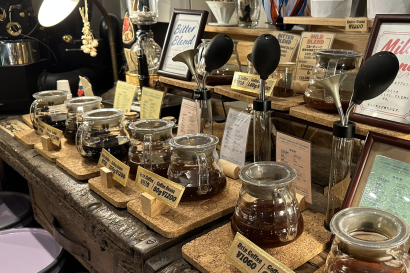Saturday | November 11th 2017 | Higashi-Funabashi, Chiba
In Japan, foreigners (read: study abroad students) are colloquially referred to as gaijin or gaikokujin. Since Japan is mostly comprised of East Asian people (who also speak Japanese fluently), anybody who doesn’t fit this sticks out. As a result, there are a variety of different experiences depending on one’s positionality. Below are a variety of experiences between my friends and I organized by identity. This blog post is meant to offer some insight to what students have experienced in Japan thus far in relation to their racial/ethnic identity. If you are interested in the topics of race/ethnicity, I highly recommend Professor Sonja Dale’s course “Introduction to Japanese Society and Culture”. We often talk about race/ethnicity in Japan, and it is always a provocative topic of discussion.
Asian-Americans
Speaking for myself, I came into Japan with some Japanese ability. Coupled with my phenotype, I’m able to effectively blend into Japanese society — well, until I need to have a full conversation in Japanese, that’s when my Americanness takes over. But, up until that point, I don’t find myself ever getting stared at. In addition, because I know I am not of Japanese ethnicity, I don’t have to wrestle with any cultural confusion. By that, I mean I don’t struggle with not being “Japanese enough” because I know I’m not Japanese. I’m merely studying the language.
In comparison, my Half-Japanese friends have an entirely different experience. While they are in the United States, their phenotype renders them Asian-looking. Since the United States exists under white supremacy, the typical conception of an American is a white American. As a result, Japanese-Americans are consistently told that they are Japanese while in America. However, upon arrival to Japan, their Americanness takes over. This is especially tough because Japaneseness is such a pertinent social marker in Japan. It’s not enough to merely be phenotypically Asian, or ethnically Japanese in Japan. In addition, people have to bear Japanese nationality and fluency in the language to truly be accepted.
Therefore, Japanese-Americans find themselves in an odd predicament where they’re simultaneously Japanese, but not Japanese because of the semantic overlap. And because they are Japanese, the semantic overlap can create cultural and social confusions that non-Japanese Asian Americans do not experience. For example, Japanese-Americans are held to the highest standard in relation to language competency. While people in Japan may praise foreigners for picking up simple phrases, Japanese-Americans are expected to be fluent because of their ethnicity, which is ill-conceived because it entirely suspends their culture and upbringing.
Black woman
From my friend’s perspective as a black woman, she strives to behave and present herself in an especially respectful manner because there is such a small black population in Japan. As a result, she feels as though she has a certain duty to broaden the Japanese conception of blackness by upholding an air of sophistication.
White woman
Although my friend visibly stands out from the crowd, the attention that she does get tends to be on the positive side. She attributes that her privilege as a white woman has followed her. In particular, she shares that Japanese people are easily impressed by her Japanese ability when she uses simple phrases and words. This same privilege is not afforded to phenotypically Asian people.

Allen Chen
Hailing from Southern California, I traveled the (not so) great distance of seven miles to attend Occidental College in Los Angeles. At Oxy, my coursework in American Studies and Sociology allows me to explore American history, literature, and culture. While abroad, I aim to broaden my understanding of the American experience, improve my Japanese, and grow as an individual.








